When we think about screenwriting we tend to think about the writer behind the work we eventually see on the screen. But what about all of the other important jobs we don’t see that help the script become successful? A lot of work goes on behind the scenes. And for burgeoning writers, it can be easy to lose sight of the hard graft that goes on to make films and TV shows come to life. One of these crucial job roles that often goes unrecognized is a script coordinator.
In this article, we’ll look at what goes into the job of a script coordinator. What are the fundamental responsibilities and how can you pursue this career path?
Table of Contents
- What is a Script Coordinator?
- What Are a Script Coordinator’s Responsibilities?
- 1. Proofreading
- 2. Tracking Consistency and Continuity
- 3. Taking Notes and Offering Feedback
- 4. Checking Legal Issues
- 5. Checking Accuracy – Historical or Real-World
- 6. Monitoring Budget/Financial Concerns
- 7. Then, Once the Revisions Are Complete…
- What is the Difference Between a Script Coordinator and Script Supervisor?
- How Do You Become a Script Coordinator?
- In Summary
What is a Script Coordinator?
A script coordinator can have many different roles depending on the nature of the film or TV series they are working on. However, broadly speaking a script coordinator is responsible for the efficient production of each script.
The script coordinator is a liaison between the written script and the production; making sure everything is in order for an efficient and effective reading and execution of said script.
More often than not they’re on the front line in terms of receiving the script. And it will then be their job to get that script out to all the relevant departments. In this sense, they act as a lubricant between the writers and production roles.
- They also provide an essential checking role, making sure that everything is in order within the script in terms of formatting. This ranges from spelling and punctuation to following industry-standard screenplay format.
- They also may be in charge of highlighting any potential legal issues raised in the script. They will then have to resolve these issues before they’re set in stone.
The script coordinator is responsible, overall, for keeping track of the changes, notes and annotations made on the script as it makes its way through the various team members and stages of development. The script coordinator must filter everything and maintain a clear and up-to-date script. This, in the end, will facilitate a smooth and efficient production.
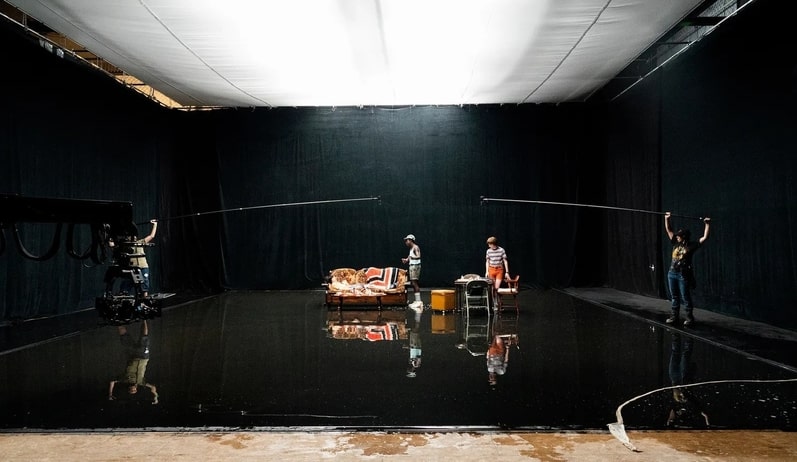
What Are a Script Coordinator’s Responsibilities?
So what are some of the script coordinator’s responsibilities? These will range from production to production. Some productions may, for example, have other roles that can take up these responsibilities. This will let the script coordinator focus on one or a handful of tasks rather than everything all at once.
Mostly though, the script coordinator’s responsibilities will break down into (but not be limited to) the following…
1. Proofreading
Proofreading is one of the most crucial roles a script coordinator has. Once the writers have created the early drafts, the script coordinator comes in and assesses them for any missed errors.
As well as looking out for spelling and grammar mistakes, they will also be looking out for formatting errors. They will be crucial in assessing whether the script is functional and readable overall.
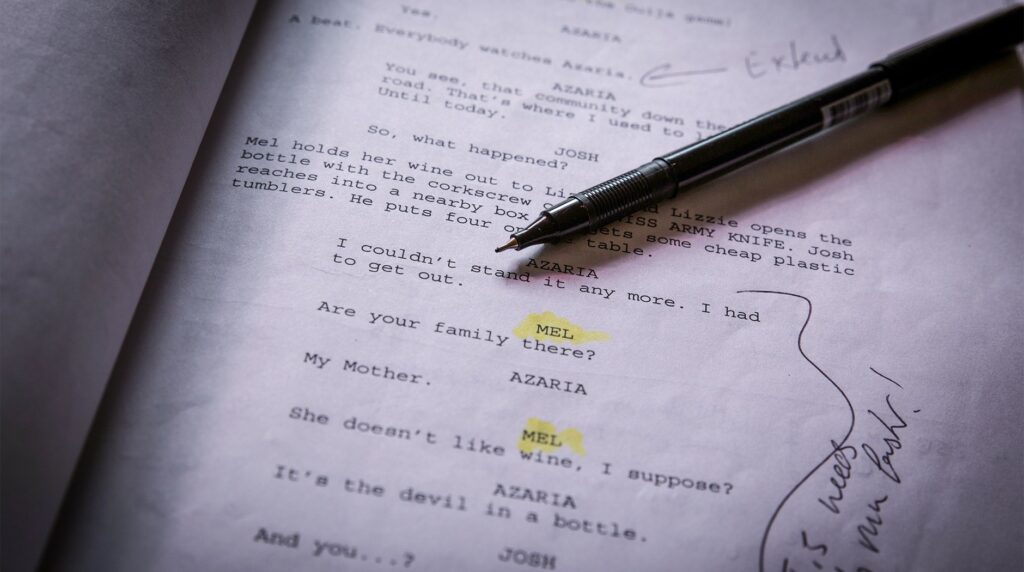
2. Tracking Consistency and Continuity
Especially throughout a series, the script coordinator will be responsible for making sure all elements are consistent. This can range from creative aspects like characterisation and narrative to more technical aspects like character descriptions, locations, dialogue and timelines.
In TV series’ there will be many hours of story to convey. And so the script coordinator serves a vital role in tracking the continuity of important elements across these hours. There will likely be a great amount of work to keep up with. So the script coordinator may use tools such as spreadsheets to keep an efficient log of all the elements that need to remain consistent.
3. Taking Notes and Offering Feedback
The script coordinator isn’t strictly a creative role. However, they can still be vital in providing feedback to the writers. They’re an editor in this regard, helping the writer(s) smooth out their work and acting as a soundboard. No great writing is created in isolation. The script coordinator, therefore, can be one of many roles in the production process that provides feedback.

4. Checking Legal Issues
Another important job is taking note of any elements within the script that may need to be cleared legally or may present potential problems down the line. They will then likely take the issue further up the chain to a lawyer or producer.
So it’s not necessarily the script coordinator’s responsibility to be the final word on legal matters. But they will flag these potential issues. Then, if these issues are not immediately solvable by the removal of such elements, the script coordinator will carry them to another production member who can resolve the issues resoundingly.
5. Checking Accuracy – Historical or Real-World
The writer(s) may not even realize they need help in this way. Once the first draft is handed to the script coordinator, accuracy checks will need to be carried out.
- Are there historical references, for example, because the film is set around a specific time period or historical event? Then the script coordinator will fact-check these references.
- Or, for instance, are there references to a specific aspect of a location? Then the script coordinator will check the accuracy of these references.
The script coordinator catches any falls the writer(s) make in this regard. Whilst the writer can run free with their imagination, the script coordinator is there to provide backup. They make sure the writer won’t be caught out further down the line by inadvertent inaccuracies.
6. Monitoring Budget/Financial Concerns
Similarly, it’s not the writer’s job to keep track of what they’re writing will mean financially to the production. Their job is, at the end of the day, to write. However, the script coordinator will be there to keep track of the financial implications of what’s being written.
They might even have to make adjustments accordingly. They might, for instance, advise the writer(s) to merge two locations into one in order to save money. Or they may provide annotations on the script. Here they may, for example, highlight where action could be expanded and/or contracted depending on the production’s budget limitations.
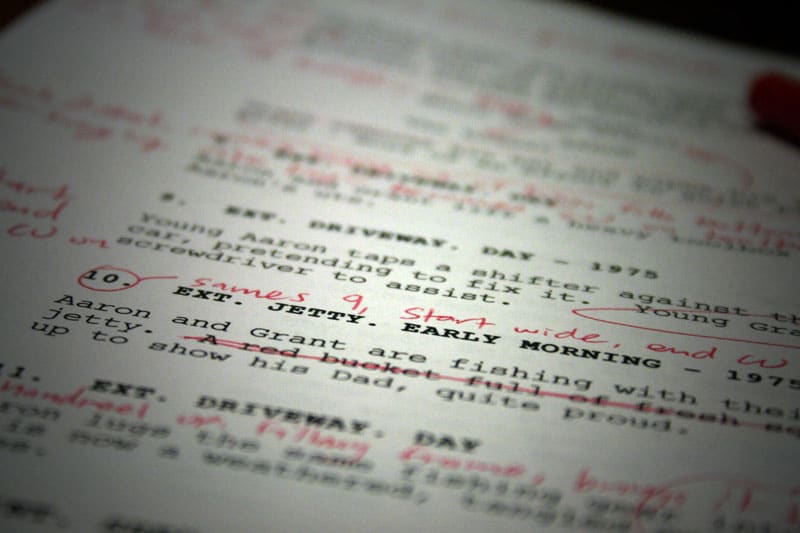
7. Then, Once the Revisions Are Complete…
The script coordinator is then responsible for ensuring the cast and crew have an updated copy of the script. They keep the whole cast and crew refreshed in time for filming and rehearsals.
In circumstances where the script needs updating, the script coordinator must act to deliver a new and updated set of scripts to the cast and crew in time to learn stage directions and lines.
The script coordinator will also communicate with directors, producers and other vital production members to ensure that all needs are being met in line with the script’s requirements. The script coordinator is the script’s champion in this regard. They make sure that the production side of the creative process is getting everything they need to fully realize the script to the best of its potential.
Throughout production, the script coordinator is there to maintain clarity and consistency in the script at all times. The script may change and develop as it progresses and moves between many different production members. So the script coordinator must keep on top of all these changes and maintain the script as a cohesive entity.
What is the Difference Between a Script Coordinator and Script Supervisor?
The role is distinctly different from the script supervisor. They annotate the script on set and track concerns related to the script during production to facilitate the post-production workflow.
Furthermore, unlike other development roles (like a writer’s assistant or script editor) the script coordinator will stay the course for the show as it enters production. Others may potentially leave when the development stage is over.
How Do You Become a Script Coordinator?
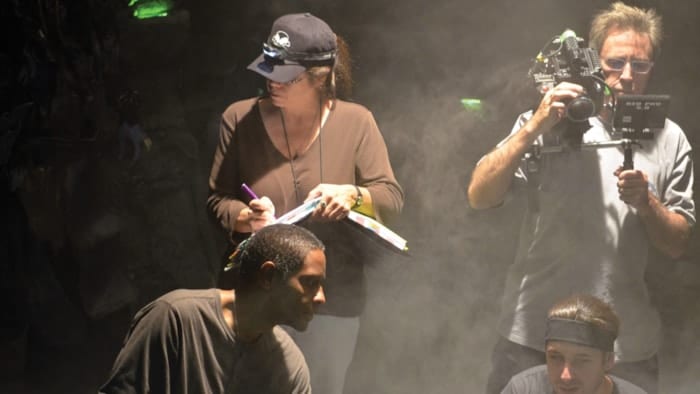
So how do you become a script coordinator? Like most roles in the film and TV industry, every script coordinator will have a different story about their path.
- Many will come from other production roles.
- Some will have experience in script development.
- It often can depend on the specific showrunner, producer, writer or line producer. They’ll typically be the ones responsible for hiring or recommending script coordinators.
So if you have an existing relationship with someone in one of these roles, advertising your suitability can be a good way to get in. From there, do a good job and you’ll continue to work with this person. If you don’t already have this kind of relationship, seek to make contact with these roles. Demonstrate your skills and suitability to whatever they’re working on.
It can be hard to pinpoint any specific path to finding these kinds of roles. It often depends on your ability to make connections and wait for the right opportunity. However, there are a handful of key experiences and skills that are fundamental to the role…
Industry/Script Development Experience
It’s unlikely that a script coordinator will be an entry-level job. Prospective candidates will need to have knowledge and experience of the industry, particularly from a screenwriting perspective.
This may manifest via production experience as a runner, for example, or experience in script development. Either way, a script coordinator will need to have a familiarity with the nuances of screenwriting craft and production.
This way they will be well prepared to offer relevant advice and guidance to the script’s development. They’ll also have a familiarity with the environment. This will mean that, in turn, they will have a shorthand for dealing with problems that arise.
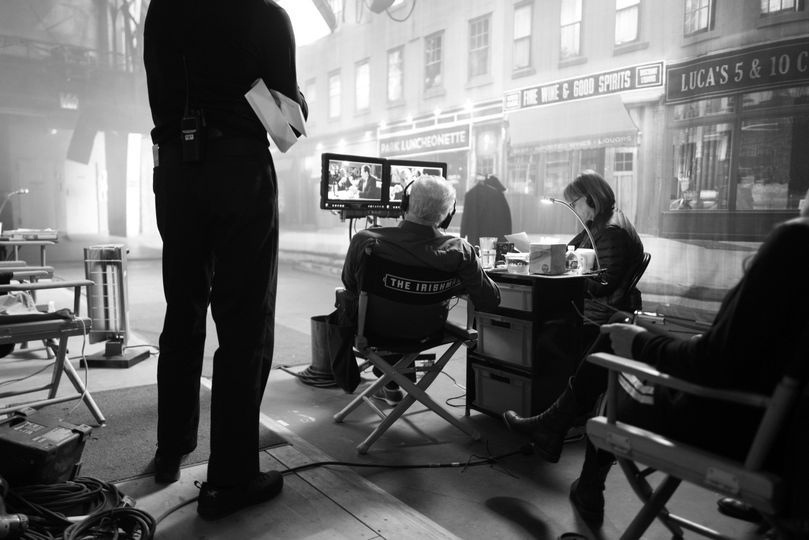
Good Organizational and Communication Skills
Managing and tracking multiple changes is a key part of the job. So a script coordinator must be good at organizing and filtering information. They will need to be someone who has proven methods for keeping things organized; using, for example, spreadsheets, tables and checklists.
Not only do they need to keep things organized for themselves, however, but also for all those they’re responsible for filtering information to. Clarity and communication are paramount here. It’s no good being organized if the other team members don’t also feel the benefits.
So the script coordinator must be someone who can manage lots of changing elements and convey those changing elements in a clear, concise way. They must almost make the process invisible in this regard, getting all the relevant information to the relevant people in a seamless manner.
Details Person
Similarly, the script coordinator must also be someone who is attuned to the finer details. This is essential for proofreading the script and ultimately having both a rounded and intimate view of the script at hand.
They must be someone who will notice things in the script that others will miss. Moreover, they need to be someone who sees the bigger picture. This is vital for keeping track of elements like budget, continuity, locations, and longevity.
So the script coordinator must be focused on the details but not too myopic in this sense; always keeping the wider picture of all the different production elements in view.
In Summary
The script coordinator is a liaison between the written script and the production. They make sure everything is in order for an efficient and effective reading and execution of said script.
The script coordinator has a range of responsibilities; from proofreading scripts, checking for potential issues, distributing up-to-date scripts to all production members, offering notes, monitoring budgetary concerns and managing script changes during production.
There’s no set path to becoming a script coordinator. However, some essential requirements include having fantastic organizational/communication skills, some industry/production experience and a penchant for details.
– What did you think of this article? Share It , Like It , give it a rating, and let us know your
thoughts in the comments box further down…
–Struggling with a script or book? Story analysis is what we do, all day, every day…
check out our range of script coverage services for writers & filmmakers.
This article was written by Owen Johnson and edited by IS Staff.
Get *ALL* our FREE Resources
Tackle the trickiest areas of screenwriting with our exclusive eBooks. Get all our FREE resources when you join 60,000 filmmakers on our mailing list!

